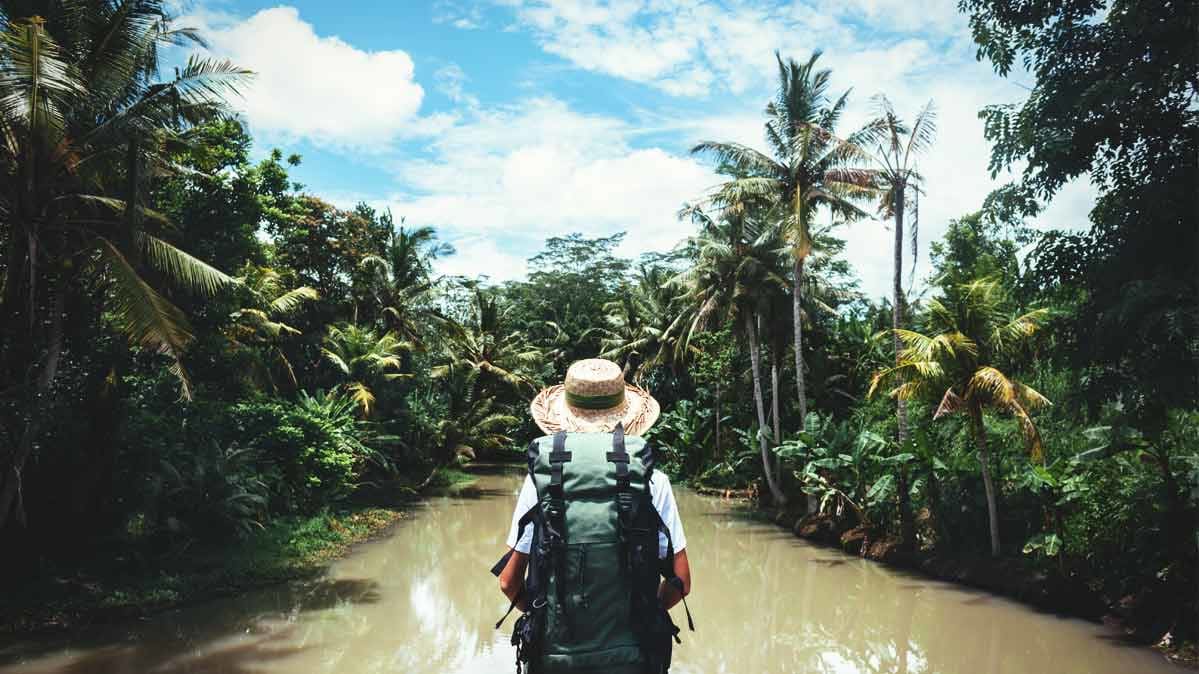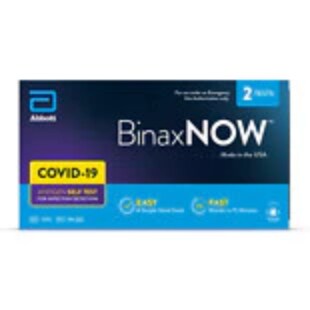
An official website of the United States government
Here’s how you know
Official websites use .gov A .gov website belongs to an official government organization in the United States.
Secure .gov websites use HTTPS A lock ( Lock A locked padlock ) or https:// means you’ve safely connected to the .gov website. Share sensitive information only on official, secure websites.

Vaccines for Travelers
Vaccines protect travelers from serious diseases. Depending on where you travel, you may come into contact with diseases that are rare in the United States, like yellow fever. Some vaccines may also be required for you to travel to certain places.
Getting vaccinated will help keep you safe and healthy while you’re traveling. It will also help make sure that you don’t bring any serious diseases home to your family, friends, and community.
On this page, you'll find answers to common questions about vaccines for travelers.
Which vaccines do I need before traveling?
The vaccines you need to get before traveling will depend on few things, including:
- Where you plan to travel . Some countries require proof of vaccination for certain diseases, like yellow fever or polio. And traveling in developing countries and rural areas may bring you into contact with more diseases, which means you might need more vaccines before you visit.
- Your health . If you’re pregnant or have an ongoing illness or weakened immune system, you may need additional vaccines.
- The vaccinations you’ve already had . It’s important to be up to date on your routine vaccinations. While diseases like measles are rare in the United States, they are more common in other countries. Learn more about routine vaccines for specific age groups .
How far in advance should I get vaccinated before traveling?
It’s important to get vaccinated at least 4 to 6 weeks before you travel. This will give the vaccines time to start working, so you’re protected while you’re traveling. It will also usually make sure there’s enough time for you to get vaccines that require more than 1 dose.
Where can I go to get travel vaccines?
Start by finding a:
- Travel clinic
- Health department
- Yellow fever vaccination clinic
Learn more about where you can get vaccines .
What resources can I use to prepare for my trip?
Here are some resources that may come in handy as you’re planning your trip:
- Visit CDC’s travel website to find out which vaccines you may need based on where you plan to travel, what you’ll be doing, and any health conditions you have.
- Download CDC's TravWell app to get recommended vaccines, a checklist to help prepare for travel, and a personalized packing list. You can also use it to store travel documents and keep a record of your medicines and vaccinations.
- Read the current travel notices to learn about any new disease outbreaks in or vaccine recommendations for the areas where you plan to travel.
- Visit the State Department’s website to learn about vaccinations, insurance, and medical emergencies while traveling.
Traveling with a child? Make sure they get the measles vaccine.
Measles is still common in some countries. Getting your child vaccinated will protect them from getting measles — and from bringing it back to the United States where it can spread to others. Learn more about the measles vaccine.
Find out which vaccines you need
CDC’s Adult Vaccine Quiz helps you create a list of vaccines you may need based on your age, health conditions, and more.
Take the quiz now !
Get Immunized
Getting immunized is easy. Vaccines and preventive antibodies are available at the doctor’s office or pharmacies — and are usually covered by insurance.
Find out how to get protected .
Disclaimer Policy: Links with this icon ( ) mean that you are leaving the HHS website.
- The Department of Health and Human Services (HHS) cannot guarantee the accuracy of a non-federal website.
- Linking to a non-federal website does not mean that HHS or its employees endorse the sponsors, information, or products presented on the website. HHS links outside of itself to provide you with further information.
- You will be bound by the destination website's privacy policy and/or terms of service when you follow the link.
- HHS is not responsible for Section 508 compliance (accessibility) on private websites.
For more information on HHS's web notification policies, see Website Disclaimers .
Travel vaccination advice
If you're planning to travel outside the UK, you may need to be vaccinated against some of the serious diseases found in other parts of the world.
Vaccinations are available to protect you against infections such as yellow fever , typhoid and hepatitis A .
In the UK, the NHS routine immunisation (vaccination) schedule protects you against a number of diseases, but does not cover all of the infectious diseases found overseas.
When should I start thinking about the vaccines I need?
If possible, see the GP or a private travel clinic at least 6 to 8 weeks before you're due to travel.
Some vaccines need to be given well in advance to allow your body to develop immunity.
And some vaccines involve a number of doses spread over several weeks or months.
You may be more at risk of some diseases, for example, if you're:
- travelling in rural areas
- backpacking
- staying in hostels or camping
- on a long trip rather than a package holiday
If you have a pre-existing health problem, this may make you more at risk of infection or complications from a travel-related illness.
Which travel vaccines do I need?
You can find out which vaccinations are necessary or recommended for the areas you'll be visiting on these websites:
- Travel Health Pro
- NHS Fit for Travel
Some countries require proof of vaccination (for example, for polio or yellow fever vaccination), which must be documented on an International Certificate of Vaccination or Prophylaxis (ICVP) before you enter or when you leave a country.
Saudi Arabia requires proof of vaccination against certain types of meningitis for visitors arriving for the Hajj and Umrah pilgrimages.
Even if an ICVP is not required, it's still a good idea to take a record of the vaccinations you have had with you.
Find out more about the vaccines available for travellers abroad
Where do I get my travel vaccines?
First, phone or visit the GP practice or practice nurse to find out whether your existing UK vaccinations are up-to-date.
If you have any records of your vaccinations, let the GP know what you have had previously.
The GP or practice nurse can give you general advice about travel vaccinations and travel health, such as protecting yourself from malaria.
They can give you any missing doses of your UK vaccines if you need them.
Not all travel vaccinations are available free on the NHS, even if they're recommended for travel to a certain area.
If the GP practice can give you the travel vaccines you need but they are not available on the NHS, ask for:
- written information on what vaccines are needed
- the cost of each dose or course
- any other charges you may have to pay, such as for some certificates of vaccination
You can also get travel vaccines from:
- private travel vaccination clinics
- pharmacies offering travel healthcare services
Which travel vaccines are free?
The following travel vaccines are available free on the NHS from your GP surgery:
- polio (given as a combined diphtheria/tetanus/polio jab )
- hepatitis A
These vaccines are free because they protect against diseases thought to represent the greatest risk to public health if they were brought into the country.
Which travel vaccines will I have to pay for?
You'll have to pay for travel vaccinations against:
- hepatitis B
- Japanese encephalitis
- tick-borne encephalitis
- tuberculosis (TB)
- yellow fever
Yellow fever vaccines are only available from designated centres .
The cost of travel vaccines that are not available on the NHS will vary, depending on the vaccine and number of doses you need.
It's worth considering this when budgeting for your trip.
Other things to consider
There are other things to consider when planning your travel vaccinations, including:
- your age and health – you may be more vulnerable to infection than others; some vaccines cannot be given to people with certain medical conditions
- working as an aid worker – you may come into contact with more diseases in a refugee camp or helping after a natural disaster
- working in a medical setting – a doctor, nurse or another healthcare worker may require additional vaccinations
- contact with animals – you may be more at risk of getting diseases spread by animals, such as rabies
If you're only travelling to countries in northern and central Europe, North America or Australia, you're unlikely to need any vaccinations.
But it's important to check that you're up-to-date with routine vaccinations available on the NHS.
Pregnancy and breastfeeding
Speak to a GP before having any vaccinations if:
- you're pregnant
- you think you might be pregnant
- you're breastfeeding
In many cases, it's unlikely a vaccine given while you're pregnant or breastfeeding will cause problems for the baby.
But the GP will be able to give you further advice about this.
People with immune deficiencies
For some people travelling overseas, vaccination against certain diseases may not be advised.
This may be the case if:
- you have a condition that affects your body's immune system, such as HIV or AIDS
- you're receiving treatment that affects your immune system, such as chemotherapy
- you have recently had a bone marrow or organ transplant
A GP can give you further advice about this.
Non-travel vaccines
As well as getting any travel vaccinations you need, it's also a good opportunity to make sure your other vaccinations are up-to-date and have booster vaccines if necessary.
Although many routine NHS vaccinations are given during childhood, you can have some of them (such as the MMR vaccine ) as an adult if you missed getting vaccinated as a child.
There are also some extra NHS vaccinations for people at higher risk of certain illnesses, such as the flu vaccine , the hepatitis B vaccine and the BCG vaccine for tuberculosis (TB) .
Your GP can advise you about any NHS vaccinations you might need.
Find out about NHS vaccinations and when to have them
Page last reviewed: 16 March 2023 Next review due: 16 March 2026
- Skip to main content
- Skip to "About this site"
Language selection
Search travel.gc.ca.
Help us to improve our website. Take our survey !
Please help improve our website. See if you qualify .
Travel vaccinations
Mpox travel health advice.
Before travelling, talk to a health care provider about your travel plans and how you can reduce your risk of getting viruses like mpox.
If you develop symptoms of mpox when travelling or upon return, avoid contact with others and consult a health care provider immediately.
Mpox: Advice for travellers
When travelling outside Canada, you may be at risk for a number of vaccine preventable illnesses.
You should consult a health care provider or visit a travel health clinic preferably six weeks before you travel. This is an opportunity to:
- review your immunization history
- make sure your provincial/territorial vaccination schedule is up-to-date
- discuss any trip-related health concerns you may have
- assess your needs based on where you plan to travel and what you plan to do
You may need additional vaccinations depending on your age, planned travel activities and local conditions. Preventing disease through vaccination is a lifelong process.
Use the reference below to determine which vaccinations may be recommended or required for your destination.
Vaccination recommendations by destination
Yellow fever vaccination.
Some countries require proof that you have received a yellow fever vaccination before allowing you to enter the country. Consult an embassy or consulate of your destination country in Canada for up-to-date information on its entry and exit requirements before you travel abroad.
Other countries may require you to have been vaccinated for yellow fever if you have passed through an area where yellow fever may occur .
Proof of vaccination must be documented on an International Certificate of Vaccination or Prophylaxis . You must carry the original certificate with you.
In Canada, the vaccination is only given at designated yellow fever vaccination centres .
Immunization records
- Download the free CANImmunize app from the iOS App Store or Google Play, and manage your family’s vaccination records on the go.
- Carry copies of your family’s immunization records while you travel and leave the originals at home.
- Sickness or injury
- Travel Advice and Advisories
- If you get sick after travelling
- Receiving medical care in other countries
- Travel health kit
- Travel insurance
- Well on Your Way - A Canadian’s Guide to Healthy Travel Abroad
- Tips for healthy travel
- Yellow Fever Vaccination Centres in Canada , Public Health Agency of Canada (PHAC)
- Recommended Immunization Schedules , PHAC
Ad-free. Influence-free. Powered by consumers.
The payment for your account couldn't be processed or you've canceled your account with us.
We don’t recognize that sign in. Your username maybe be your email address. Passwords are 6-20 characters with at least one number and letter.
We still don’t recognize that sign in. Retrieve your username. Reset your password.
Forgot your username or password ?
Don’t have an account?
- Account Settings
- My Benefits
- My Products
- Donate Donate
Save products you love, products you own and much more!
Other Membership Benefits:
Suggested Searches
- Become a Member
Car Ratings & Reviews
2024 Top Picks
Car Buying & Pricing
Which Car Brands Make the Best Vehicles?
Tires, Maintenance & Repair
Car Reliability Guide
Key Topics & News
Listen to the Talking Cars Podcast
Home & Garden
Bed & Bath
Top Picks From CR
Best Mattresses
Lawn & Garden
TOP PICKS FROM CR
Best Leaf Blowers
Home Improvement
Home Improvement Essential
Best Wood Stains
Home Safety & Security
HOME SAFETY
Best DIY Home Security Systems
SURVEY RESULTS
Most and Least Reliable Refrigerators
Small Appliances
Best Small Kitchen Appliances
Laundry & Cleaning
Best Washing Machines
Heating, Cooling & Air
Best Air Purifiers
Electronics
Home Entertainment
FIND YOUR NEW TV
Home Office
Cheapest Printers for Ink Costs
Smartphones & Wearables
BEST SMARTPHONES
Find the Right Phone for You
Digital Security & Privacy
MEMBER BENEFIT
CR Security Planner
Take Action
Don't Forget These Vaccines When You Travel
Planning an international winter getaway know which shots—from measles to yellow fever—you may need to protect yourself., sharing is nice.
We respect your privacy . All email addresses you provide will be used just for sending this story.

If you're planning a winter trip to another country, you may be preoccupied with booking airfare and finding lodging, but certain destinations require an extra step of planning: travel vaccines.
You might be tempted to skip the extra doctor's visit, but don't. Last year saw a record number of measles cases in Europe, and the highly contagious illness has continued to spread across the continent throughout 2019. Yellow fever remains a significant concern in South America, and hepatitis A has doctors everywhere—including in the U.S.—on alert.
You can protect yourself from all three of these illnesses (and more) if you get your shots in time. Here's a quick rundown on the travel vaccines recommended by the Centers for Disease Control and Prevention .
According to the CDC , most cases of measles in the U.S. result from international travel, when unvaccinated Americans become infected during visits to other countries, then carry the disease back home.
Measles, one of the most contagious of all infectious diseases, is spread through the cough or sneeze of an infected person. Symptoms include rash, high fever, cough, runny nose, and red, watery eyes. In rare cases, the disease can cause brain swelling and be fatal.
Measles outbreaks have become increasingly common in the past couple of years in the U.S. and other countries.
Europe is of particular concern for travelers. As CDC researchers noted in a report published in Pediatrics earlier this year, Europe had a record number of cases—more than 41,000, including 37 deaths—between January and June 2018. According to the Pediatrics report, the Ukraine reported the largest number of cases, but France, Georgia, Greece, Italy, Serbia, and the Russian Federation also had a high number.
But because Europe, a popular travel destination, isn't one that visitors usually think of as having significant risks of infectious disease, they may not consider the need for vaccinations.
In fact, a recent study in JAMA Pediatrics found that not all children are adequately vaccinated against measles before international travel. (The CDC has special recommendations for measles vaccinations for children going overseas.)
In this study, only about 41 percent of infants and preschool-age children who were eligible for pre-travel measles vaccination actually received it.
And a study by researchers at Massachusetts General Hospital in Boston, published in 2017 in the Annals of Internal Medicine, found that more than half of all U.S. travelers—not just young kids—who were eligible for the measles, mumps, and rubella (MMR) vaccine weren't getting it before leaving the country.
The CDC advises anyone who isn't protected against measles, either through vaccination or past infection, to get vaccinated before traveling anywhere overseas.
You'll need to see your doctor at least four to six weeks before you leave. That's because it may take that much time to complete a full course of the vaccine and to give your body time to build up immunity in response to the shot. See the CDC's recommendations for travelers of different ages and Consumer Reports' coverage of when a measles booster is warranted .
Other Routine Shots
Before any international trip, you should make sure you're up to date on all of your routine vaccines, not only measles-mumps-rubella (MMR) but also diphtheria-tetanus-pertussis (DTP), varicella (chickenpox), polio, and your yearly flu shot.
Some of these diseases are quite rare in the U.S., thanks to good vaccine coverage of children here. But the CDC says these same diseases can be much more common in other countries, including areas where you wouldn't usually worry about travel-related illnesses. Being current with your routine vaccines will give you the best protection.
Yellow Fever
Yellow fever is spread by the Aedes aegypti mosquito (the same one that spreads Zika , dengue, and chikungunya). Although the virus was eradicated from much of the world in the mid-1900s, it has re-emerged in recent years in parts of Africa and South America, including, most recently, Brazil .
Brazil has been suffering through a yellow fever outbreak that's one of the largest the world has seen in decades.
"Since early 2018, a number of unvaccinated travelers to Brazil contracted yellow fever," the CDC notes. "Several have died."
According to the CDC , the vaccine that's typically used to prevent the yellow fever virus, known as YF-Vax, is currently unavailable due to production delays . To cover the shortage, the CDC and the Food and Drug Administration have turned to a different yellow fever vaccine known as Stamaril.
This other shot is already approved in more than 70 other countries around the world and is thought to be just as safe and effective as the YF-Vax shot. It's been okayed by the FDA under a special program , but its availability in the U.S. is limited.
If you're traveling to a country where yellow fever is spreading or one that requires all visitors to have a yellow fever shot, be sure to plan ahead. Unlike other travel shots, the yellow fever vaccine is available only at specially designated clinics . Because of the shortage, there will be far fewer clinics than usual.
You definitely don't want to skip this shot. Yellow fever is a serious disease. The CDC estimates that it can be fatal in 15 to 20 percent of cases. Find out where the nearest clinic is ( you can search online here ) and make sure you budget enough time to go.
You should also be sure to apply plenty of insect repellent , which can help protect you from the mosquitoes that spread yellow fever, Zika, and other diseases .
Hepatitis A and B
Hepatitis A is a virus that causes liver disease. It spreads through contaminated food and through physical contact with an infected person, especially if that person doesn't wash his or her hands properly after using the bathroom. It's common among people who travel to developing countries, particularly those who visit rural areas, though it can also be spread in more modern tourist accommodations.
The vaccine to prevent this virus—given in two doses, six months apart—is 100 percent effective, according to the CDC.
Hepatitis B is a different but related virus that passes through blood, semen, and other body fluids. It can disappear after just a few weeks or it can linger for a lifetime, potentially causing liver disease and cancer.
This virus occurs in nearly every part of the world, but it's most common in Asia, Africa, South America, and the Caribbean. Travel-related cases are generally rare but can result from unprotected sex, intravenous drug use, and blood transfusions.
The vaccine for hepatitis B is more than 90 percent effective. It's usually given in three doses spread across six months, but ask your doctor for an accelerated schedule if your travel plans require it.
Typhoid fever is a serious disease caused by the bacteria salmonella typhi and is spread through contaminated food and water. In rare cases, it can be fatal. Typhoid is rare in developed countries like the U.S. but common in most of the rest of the world, especially South Asia. The U.S. sees about 300 travel-related cases of typhoid fever every year.
The vaccine for typhoid fever is available as a pill and an injectable. The pill contains live but weakened bacteria and is given in four doses: One capsule is taken every other day for a week. The injectable contains killed bacteria and is given in one dose. Get the injectable at least two weeks before traveling and complete the oral vaccine at least 10 days before.
The CDC concedes that the typhoid vaccine in any form is only about 50 to 80 percent effective. You should still get it before traveling to an endemic region. But you should also take basic precautions with the food you eat while traveling, sticking to bottled water in places where the tap water is questionable, for example.
Rabies is a disease caused by a virus that spreads through the saliva of infected animals. The most common sources of human infection are licks, bites, and scratches from infected dogs. But bats, foxes, raccoons, and mongooses have also been known to pass the disease to humans. Prevention of this disease is especially important because once contracted, it's almost always fatal.
Rabies is found all over the world except in Antarctica. In most developed countries, including the U.S., the risk of human infection is low because the virus is rare in domestic animals. But in much of Africa, Asia, and Latin America, rabies in dogs is still a problem.
If you're traveling to a country where the virus is prevalent in dogs, or if your itinerary will bring you into contact with wild animals like bats and other carnivores, you should consider getting a rabies shot before you travel. It's given in three doses over three weeks.
It's important to note that even if you've had your rabies shots, you should still seek immediate medical treatment if you're bitten or scratched by an animal while traveling. You can't be too careful when it comes to rabies prevention.
There's no vaccine available against malaria, but it's still crucial to plan ahead if you're going to a region where malaria is common. You can take prophylactic medications that will reduce your risk of developing malaria if you're bitten by an infected mosquito.
The recommendations vary depending on what country you're visiting, what time of year you're going, and whether the mosquitoes in your destination have developed resistance to certain antimalarial drugs.
The CDC offers this chart of every country and specific recommendations for preventing malaria in different destinations.
Be the first to comment
- Extra 15% off $35+ vitamins with code VITA15
- Earn $7 rewards on $30+ select health & wellness
- Up to 60% off clearance
- Your Account
- Walgreens Cash Rewards
- Prescription Refills & Status
- Vaccination Records
- Order Status & History
- Buy It Again
Select a store
Travel immunizations & resources.

Because you shouldn’t stress about your health when you travel

No one wants to get sick on vacation
Stick to your routine no matter where you are.

Making passport renewal easy
Need help with travel medical insurance?
Get up to date.
What vaccines do you need to travel?
The vaccines you need will depend on where you’re traveling and what you will be doing during your travels. Walgreens pharmacists are able to assist in helping you determine which vaccines you may need.
Which travel vaccines are available at Walgreens?
Travel vaccines Walgreens offers include: Yellow Fever, Meningitis, Polio, Typhoid, Japanese Encephalitis, Tick-Borne Encephalitis, Hepatitis A, Hepatitis B and Rabies*.
*Vaccines offered at Walgreens vary by state, age and health conditions. Talk to your local pharmacist about availability.
What other vaccines should I have before traveling?
It’s important to be up-to-date on routine vaccinations before traveling as well—like Measles-Mumps-Rubella (MMR), Tetanus, Flu and COVID-19.
You are leaving Walgreens.com Any information you provide will be subject to GeoBlue’s privacy and security policies.
Essentials you don’t want to be without


Request an appointment
Destinations.

All Destinations
Please select a country or countries from the list below for the latest travel information, details on international and country specific health alerts and recommended travel vaccinations for that destination.
Certain Countries impose Covid-19 restriction which are changing on a regular basis. Check with your destination country for requirements.
Travel Vaccinations
For the latest travel information, details on international and country specific health alerts and recommended travel vaccinations for your destination, please follow the instructions below.
- South America
- South East Asia
A B C D E F G H I J K L M N O P Q R S T U V W X Y Z
- Afghanistan
- Antigua Barbuda
- Bosnia/Herzegovina
- Brunei Darussalam
- Burkino Faso
- Caicos Islands
- Cayman Islands
- Central African Republic
- Congo (Republic)
- Congo Dem. Rep.
- Cook Islands
- Dominican Republic
- Easter Island
- El Salvador
- Falkland Islands
- Fr Polynesia
- French Guiana
- Guinea Bissau
- Ivory Coast
- Korea (Dem/North)
- Korea (Rep/South)
- Liechtenstein
- Marshall Is
- Netherlands
- New Caledonia
- New Zealand
- Papua New Guinea
- Philippines
- Puerto Rico
- St. Pierre Miquelon
- St. Vincent Grenadines
- Sao Tome Principle
- Saudi Arabia
- Sierra Leone
- South Africa
- Switzerland
- Trinidad Tobago
- Turkmenistan
- United Arab Emirates
- United Kingdom
- United States
- Virgin Islands (UK)
- Virgin Islands (US)

- About the Handbook
Vaccination for international travellers
Ensure that travellers are up to date with routine vaccines. Also consider other vaccines based on travel itinerary, activities and risk of disease exposure.
Recently added
This page was added on 09 June 2018 .
Updates made
This page was updated on 16 August 2024 . View history of updates
Millions of Australians travel overseas every year. More than half of these trips are to destinations other than New Zealand, North America and Europe. 1
This page helps with making decisions about travel vaccines. Also check the disease-specific chapters in this Handbook for details about specific vaccines.
See also Infographic. Vaccination for international travellers .
Health risks of overseas travel
Health risks associated with international travel include exposure to:
- infective agents
- altitude and temperature extremes
- other physical, psychological and environmental hazards
- poor-quality or limited access to clean water, shelter, hygiene and sanitation facilities, and health and medical care
The level of health risks depends on factors such as:
- the traveller’s underlying physical and mental health and physiological state
- the itinerary and activities undertaken
- the duration of exposure to various hazards during travel
Travellers at increased risk of serious travel-associated infections include:
- young children and infants
- pregnant women
- people with underlying medical conditions, especially immunocompromising conditions due to disease or medical treatment
- people spending extended periods in multiple regions with poor resources or in remote areas
- people participating in events where large numbers of people will gather, such as major sporting, cultural, social or religious events
- migrant families travelling back to their region of origin to visit friends and relatives
Those travelling to visit friends and relatives are more likely to: 2
- have closer contact with local populations
- stay in remote or rural areas
- consume higher-risk food and beverages
Those travelling to visit friends and relatives are less likely to: 2,3
- recognise the health risks associated with travelling
- seek pre-travel health advice
- obtain the recommended vaccines or prophylaxis
Common infections acquired by travellers
Exposure to infectious diseases is one of the many health hazards of international travel. Some of these diseases are vaccine preventable. Although some of these diseases are present in Australia, the risk of acquiring them overseas may be higher because of:
- higher disease incidence in other countries
- increased risk of exposure from participating in certain activities while travelling
Foodborne and waterborne infections
It is common for travellers to ingest contaminated food or beverages, resulting in an illness. 4-6 Practicing safe eating and drinking habits is essential to minimise the risk of contracting food and waterborne diseases while travelling. These include treating water or only drinking bottled water, avoiding undercooked meat, and avoiding raw fruit and vegetables (unless they can be peeled or washed in safe water prior to eating). Most infections are diarrhoeal diseases due to enteric pathogens, but some are due to extra-intestinal microorganisms, such as hepatitis A virus and Salmonella enterica serotype Typhi (causing typhoid).
Vaccines are available against hepatitis A, typhoid and cholera.
Vector-borne infections
Insect-borne — especially mosquito-borne — infections, such as malaria and dengue, are important causes of fever in Australian travellers returning from endemic areas, particularly Southeast Asia and Oceania. 4,6
A dengue vaccine (Dengvaxia) is available for the prevention of secondary dengue infections (not primary prevention of initial dengue infection ) in select individuals. See Clinical advice: ATAGI statement on use of Dengvaxia® for Australians .
Japanese encephalitis occurs throughout much of Asia and the Western Pacific region, including eastern Indonesia and Papua New Guinea. 7 Yellow fever occurs only in parts of Africa and South America, 8 and tick-borne encephalitis occurs in parts of Europe and Asia. 9
Vaccines are available against Japanese encephalitis , yellow fever and tick-borne encephalitis .
Some other vector-borne diseases and parasitic (including protozoal and helminthic) diseases are also important for international travellers. Some are preventable through appropriate barrier precautions and chemoprophylaxis (for example, malaria). 9
Aerosol-borne infections
Vaccine-preventable infections transmitted by aerosols and/or droplets include: 9
- influenza (the most common vaccine-preventable infection among travellers) 10
- meningococcal disease
- varicella (chickenpox)
The incidence of measles and mumps is higher in many overseas countries, including some developed countries, than in Australia.
Tuberculosis is a rare infection in travellers. 11 Expatriates who live in endemic areas for a long time are more likely to acquire tuberculosis than short-term visitors. 12
Vaccines are available against all of these diseases.
Bloodborne and sexually transmitted infections
Some Australian travellers may be at risk from bloodborne and sexually transmissible infections, such as chlamydia, gonorrhoea, hepatitis B, hepatitis C, HIV and mpox (monkeypox). In some areas, healthcare workers using non-sterile medical equipment or other poor infection control practices may transmit these viruses and other bloodborne agents.
Vaccines are available against hepatitis B and mpox.
Exotic infectious agents
Travellers may be exposed to a variety of other exotic infections, such as:
- rabies from bites or scratches from rabid dogs, bats and other mammals in many countries
- schistosomiasis from exposure to water infested with the parasites, especially in Africa
- leptospirosis through activities such as rafting or wading in contaminated streams
Of these diseases, vaccines are available only against rabies.
Recommending travel vaccines
Although recommending appropriate vaccines is important, it is not the only part of a pre-travel medical consultation. Travel vaccines — those relevant for travelling — include all relevant vaccines, not just the ones that prevent diseases that most commonly occur overseas.
Do not recommend a vaccine based only on the destination country, because there is no single ‘correct’ list of vaccines for travel to any particular country.
There are 3 categories of travel vaccines:
- routinely recommended vaccines (not specific to travelling overseas)
- selected vaccines based on travel itinerary, activities and likely risk of disease exposure
- vaccines required by the International Health Regulations 2005 (IHR) or for entry into specific countries
Questions for a pre-travel medical consultation
During a pre-travel medical consultation, ask questions about the traveller’s:
- personal information, including age and whether they are pregnant or planning pregnancy
- underlying medical conditions, particularly immunocompromising conditions, and current medicines
- vaccination history (including adverse events following immunisation) and allergy history
- purpose of travel and intended activities, especially those associated with various environmental risks and hazards
- plans for travel insurance
Also ask about their itinerary in detail, including:
- date of departure and time available for vaccinations
- specific localities and routes
- rural versus urban stay
- duration of stay
- likely access to health care and other services
- likelihood of changing the planned itinerary
This information helps to tailor recommendations about preventive vaccination or chemoprophylaxis for exposure risks during the proposed trip. It also allows the clinician to advise about other appropriate preventive health measures (for example, food and water precautions, avoiding bites from mosquitoes or other arthropods) and about managing possible health conditions during travel.
Organisational requirements for vaccination
Some overseas organisations, such as schools, colleges and universities, require evidence of vaccination or immunity against some vaccine-preventable diseases, such as measles and meningococcal disease. Consider these requirements when planning and scheduling vaccines before departure.
Routinely recommended vaccines (not specific to travelling overseas)
Vaccinate all prospective travellers according to the recommended vaccination schedule appropriate for their age, underlying health conditions, occupation and lifestyle. Vaccines might include, for example, pneumococcal polysaccharide vaccine for an older person, or hepatitis B vaccine for a first aid officer.
Also ensure that all children are vaccinated according to the National Immunisation Program schedule. In exceptional circumstances, give the National Immunisation Program vaccines at the minimum age rather than the recommended age (see Table. Minimum acceptable age for the 1st dose of scheduled vaccines in infants in special circumstances ). Children vaccinated using the minimum age rather than the recommended age may need extra vaccine doses to ensure adequate protection. Observe the minimum interval requirements between doses (see Table. Minimum acceptable dose intervals for children <10 years of age ). The chances of being exposed to some diseases, such as measles and mumps, may be greater during overseas travel, even to other developed countries.
For some itineraries, it may be appropriate for the traveller to receive some booster doses earlier than the routine recommended time. An example may be diphtheria-tetanus booster.
Diphtheria, tetanus and pertussis
Vaccinate adult travellers against tetanus before departure, particularly if:
- their risk of sustaining a tetanus-prone wound is high
- there could be delays in accessing health services where they can receive tetanus toxoid boosters safely, if required
Offer dTpa vaccine during a pre-travel consultation if the traveller has never received a dose of dTpa . This provides protection against pertussis (see Pertussis ).
For high-risk travel, consider giving a booster dose of either dTpa or dT vaccine if more than 5 years have passed (see Tetanus ).
Hepatitis B
Most Australian children born since 2000 have been vaccinated against hepatitis B under the National Immunisation Program or state and territory school-based vaccination programs.
Hepatitis B vaccine is recommended for long-term or frequent travellers to regions of intermediate or high endemicity of hepatitis B, including:
- Central and South America
This is because travellers may be exposed to hepatitis B virus through bloodborne routes (including during emergency medical or dental procedures) or sexual routes. According to 1 survey, about half of Australian travellers who spent at least 3 nights in Southeast or East Asia participated in at least 1 activity that had a risk of hepatitis B transmission. 13
See also Hepatitis B .
Influenza, pneumococcal disease, and respiratory syncytial virus (RSV)
Older travellers and those with any relevant underlying medical or behavioural risk factors should receive pneumococcal vaccine. See Pneumococcal disease for more details.
Older travellers and those with medical risk factors for severe RSV disease should receive RSV vaccine.
See also RSV for more details.
Consider influenza vaccine for all travellers, especially if they are travelling to a region during its influenza season. Influenza vaccine is particularly relevant if:
- there is an influenza epidemic at the traveller’s destination
- the person is travelling in a large tourist group, especially one that includes older people
- the person is travelling on cruises, where people are relatively confined for days to weeks
See also Influenza for more details.
Measles, mumps and rubella
Inadequately vaccinated young adult travellers are responsible for most current measles outbreaks in Australia. This occurs when they acquire the infection overseas and bring it back to Australia. Some countries, regions or communities — including developed countries — have a higher incidence of measles and mumps than Australia. 9
Australians born during or since 1966 who have not received the recommended 2 doses of MMR (measles-mumps-rubella)–containing vaccines are recommended to receive MMR vaccine before travelling. This also applies to infants 6–12 months old travelling to areas with measles outbreaks or where measles is endemic . The exception is for pregnant women, because MMR is a live vaccine and is contraindicated in pregnancy.
People born before 1966 do not need to receive measles-containing vaccine (unless serological evidence indicates that they are not immune). This is because circulating measles virus and disease were prevalent before 1966, so most people would have acquired immunity from natural infection .
However, confirmed cases of measles have occurred in people born before 1966. 14 If in doubt about a person’s immunity, it may be faster and easier to vaccinate the person than conduct serological testing . See Serological testing for immunity to measles .
See also Measles .
Unvaccinated travellers are recommended to receive varicella vaccine if they either:
- have not had clinical disease, or
- have an uncertain history of clinical disease and serology shows a lack of immunity
The exception is for pregnant women, because varicella vaccine is a live vaccine and is contraindicated in pregnancy.
See also Varicella .
Meningococcal disease
Vaccination against meningococcal serogroups A, C, W-135, Y and B is recommended for certain age and population groups who are at increased risk of meningococcal disease.
In addition, MenACWY (quadrivalent meningococcal) vaccine is recommended for people who are:
- planning travel to, or living in, parts of the world where epidemics of serogroup A, C, W-135 or Y meningococcal disease occur, particularly the ‘meningitis belt’ of sub-Saharan Africa 15
- planning travel to mass gatherings, such as pilgrims travelling to the Hajj in Saudi Arabia
Seek up-to-date epidemiological information to determine whether a traveller needs meningococcal vaccination. See Accessing up-to-date travel information.
The Saudi Arabian authorities require that all pilgrims travelling to Mecca (for the Hajj or Umra) have evidence of recent vaccination with the quadrivalent meningococcal vaccine. 16 See Requirements for travellers to Mecca and Accessing up-to-date travel information .
See also Meningococcal disease .
Poliomyelitis
Ensure that all travellers are age-appropriately vaccinated against polio (see Poliomyelitis ).
If the person is travelling to a country where wild poliovirus is still circulating, they should receive inactivated poliovirus ( IPV ) vaccine if they have not completed a 3-dose primary course of any polio vaccine. Travellers who have completed the primary course should receive a single booster dose.
The World Health Organization (WHO) Global Polio Eradication Initiative website website has an up-to-date list of polio-affected countries.
Documented evidence of polio vaccination is not routinely required for travellers under the International Health Regulations. However, documented evidence of vaccination may be temporarily required according to WHO recommendations in response to new evidence of the spread of wild poliovirus (see Vaccines required by the International Health Regulations or for entry into specific countries and Documentation and certificates ).
International polio epidemiology and associated travel requirements can change. Check the Australian Government Department of Health website for current recommendations for Australian travellers .
Ensure that all travellers are age-appropriately vaccinated against COVID-19. Foreign governments may require evidence of COVID-19 vaccination before a traveller is allowed to enter. The Australian-issued International COVID-19 Vaccination Certificate is a secure way to prove COVID-19 vaccination history that has been developed to meet agreed international travel standards. Parents and carers of children <14 years of age, adolescents ≥14 years of age and adults can get a copy of their COVID-19 vaccination certificate at any time:
- using their Medicare online account through myGov
- through the Medicare Express Plus mobile app
- by calling 1800 653 809 (free call)
See also COVID-19 .
Vaccines based on travel itinerary, activities and likely risk of disease exposure
Use a risk assessment approach when recommending travel vaccines. Weigh the potential risks of disease exposure and protective benefits from vaccination against potential adverse effects, and the non-financial and financial costs of vaccination.
Prioritise vaccines for diseases that are:
- common and of significant impact, such as influenza and hepatitis A
- less common, but have severe potential adverse outcomes, such as Japanese encephalitis and rabies
Consider booster doses, where appropriate (see disease-specific chapters in this Handbook for recommendations). If the person is departing for travel soon, consider an accelerated schedule, if appropriate, such as for hepatitis B vaccine or the combination hepatitis A-hepatitis B vaccine (see Hepatitis A and Hepatitis B ). Although immunity may be established sooner with the accelerated schedule, people who receive an accelerated schedule need another dose about a year later to complete the course and ensure long-term protection.
Most travellers do not need cholera vaccine. 16,17 The risk of a traveller acquiring cholera is very low if they avoid contaminated food and water.
No country requires travellers to have certification of cholera vaccination. No country has official entry requirements for cholera vaccination
See also Cholera .
Hepatitis A
Hepatitis A vaccine is recommended for all travellers ≥1 year of age travelling to moderately or highly endemic countries (including all developing countries). The exceptions are people who have evidence of natural immunity after previous infection .
Normal human immunoglobulin is no longer used to protect travellers against hepatitis A.
See also Hepatitis A .
Japanese encephalitis
While now considered an emerging disease in Australia, Japanese Encephalitis is more likely in travellers to endemic regions overseas. 18 Japanese encephalitis ( JE ) vaccine is recommended for travellers spending a month or more in endemic areas in Asia, Papua New Guinea or the outer islands of Torres Strait during the JE virus transmission season.
Consider JE vaccination for shorter-term travellers, particularly if:
- travel is during the wet season
- travel may be repeated
- the person will spend a lot of time outdoors
- the person’s accommodation has no air-conditioning, screens or bed nets
Check a reputable source before travel for information about JE virus activity — for example, Health Information for International Travel (the ‘Yellow Book’) . 19
A traveller’s overall risk of acquiring JE in these JE - endemic countries is likely to be low (<1 case per 1 million travellers). Determine the specific risk according to the: 17
- season of travel
- regions visited
- duration of travel
- extent of outdoor activity
- extent to which the person avoids mosquito bites
See also Japanese encephalitis .
Before travel to rabies- endemic regions, advise people about:
- the risk of rabies infection
- avoiding close contact with wild, stray and domestic animals — especially dogs, cats, monkeys and bats
- the importance of appropriate immediate wound care of all animal bites and scratches
See also Rabies and other lyssaviruses, including Australian bat lyssavirus .
Recommendations for rabies vaccination as pre-exposure prophylaxis
When deciding whether to give a pre-travel prophylactic rabies vaccination, assess the:
- likelihood of exposure to potentially rabid animals
- access to appropriate health care and availability of post-exposure prophylaxis , including rabies immunoglobulin , should there be an at-risk exposure
- timeliness of access to health care after exposure
Use a lower threshold for recommending rabies pre-exposure prophylaxis for children travelling to endemic areas.
Benefits of vaccination as pre-exposure prophylaxis
Pre-travel rabies vaccination:
- ensures that the traveller has received a safe and efficacious vaccine
- simplifies the management of a subsequent exposure because the person will need fewer doses of vaccine
- means that rabies immunoglobulin — which is often extremely expensive, and difficult or even impossible to obtain in many developing countries — is not needed
- reduces the urgency of post-exposure prophylaxis
Mpox is a viral zoonotic illness caused by monkeypox virus . Previously, mpox was endemic to rainforest areas of Central and West Africa. Since 2022, there has been a multi-country outbreak in regions that are not endemic for mpox, including Australia. Mpox is often transmitted through close, sustained physical contact, with cases in the global outbreak primarily involving sexual contact.
Vaccination is recommended only for specific population groups at risk of exposure (See Mpox ). If travellers are eligible for mpox vaccination, they should receive two doses of mpox MVA-BN vaccine (JYNNEOS) before travel.
Tick-borne encephalitis
Tick-borne encephalitis (TBE) is caused by a tick-borne RNA flavivirus. The disease may involve the central nervous system. TBE is prevalent in parts of central and northern European temperate regions, and across northern Asia. Travellers are at risk when hiking or camping in forested areas in endemic regions during the summer months.
Safe and effective vaccines are available. Vaccination is recommended only for people with a high risk of exposure.
TBE vaccine is not registered in Australia, but a small stock of vaccine may be available for use under the Special Access Scheme .
Tuberculosis
Vaccination with BCG (bacille Calmette–Guérin) vaccine is generally recommended for tuberculin-negative children <5 years of age who will be staying in high-risk countries for an extended period (3 months or longer).
Vaccinating older children and adults appears to be less beneficial. However, consider vaccinating tuberculin-negative children aged ≥5 years but <16 years who may be living or travelling for long periods in high-risk countries.
A high-risk country is one that has a tuberculosis incidence of >40 per 100,000 population.
For travellers who need BCG vaccine, consider the following precautions when scheduling their vaccination visits:
- If possible, give BCG vaccine at least 3 months before the person will arrive in an endemic area.
- Give other live viral vaccines (for example, MMR , varicella, yellow fever) at the same time or with a minimum 4-week interval after BCG vaccination.
- A tuberculin skin test (TST; Mantoux), performed by trained and accredited healthcare practitioners, is recommended before receiving BCG vaccine for all individuals (except infants aged <6 months).
- People may suppress reactions to tuberculin for 4–6 weeks after viral infections or live viral vaccines, particularly measles infection and measles-containing vaccines.
State and territory tuberculosis services can provide tuberculin skin tests and BCG vaccine.
See also Tuberculosis .
Typhoid vaccine may be recommended for travellers ≥2 years of age travelling to endemic regions, including:
- the Indian subcontinent
- most Southeast Asian countries
- several South Pacific nations, including Papua New Guinea
This advice is also relevant for those travelling to endemic regions to visit friends and relatives.
Inactivated parenteral and live oral typhoid vaccine formulations are available.
See also Typhoid fever .
Yellow fever
Yellow fever vaccine is recommended for all people ≥9 months of age travelling to, or living in, an area with a risk of yellow fever virus transmission. 20
To minimise the risk of introducing yellow fever, some countries require documented evidence of yellow fever vaccination for entry, in line with the International Health Regulations (see Vaccines required by the International Health Regulations or for entry into specific countries ).
When assessing the need for yellow fever vaccination, consider:
- the risk of the person being infected with yellow fever virus
- country entry requirements
- individual factors such as age, pregnancy and underlying medical conditions
Vaccination is generally not recommended for travel to areas with a low probability of yellow fever virus exposure — that is:
- where human yellow fever cases have never been reported
- where evidence suggests only low levels of yellow fever virus transmission in the past
However, consider vaccination for a small subset of travellers to lower-risk areas who are at increased risk of exposure to mosquitoes or who are unable to avoid mosquito bites. 20
People aged ≥60 years are at increased risk of severe adverse events after primary yellow fever vaccination. Weigh the adverse effects of vaccinating people in this age group against the potential for yellow fever virus exposure and, in turn, the benefits of vaccination. 17
See also Yellow fever .
Booster doses
Most people do not need a booster dose of yellow fever vaccine. A single dose induces protective antibody levels that last for many decades. However, certain people are recommended to receive a booster if their last dose was more than 10 years ago and they are at ongoing risk of yellow fever virus infection . See Yellow fever .
Vaccines required by the International Health Regulations or for entry into specific countries
Yellow fever requirements.
The International Health Regulations require yellow fever vaccination for travelling in certain circumstances. This is to:
- protect travellers who are likely to be exposed to yellow fever
- stop importation of the virus into countries that have the relevant vectors (see Yellow fever ).
Some countries may require documented evidence of yellow fever vaccination as a condition of entry or exit (see Planning and documenting vaccines ). This includes countries that do not currently have yellow fever circulating.
Australia’s yellow fever travel requirements are detailed in the Australian Government Department of Health’s yellow fever fact sheet .
Contact the relevant embassies or consulates in Australia to confirm the entry requirements for yellow fever vaccination for the countries a traveller intends to enter or transit through.
Requirements for travellers to Mecca
Each year, Saudi Arabia’s Ministry of Health publishes the requirements and recommendations for entry visas for travellers on pilgrimage to Mecca (Hajj and Umra). 16
For pilgrims travelling directly from Australia, only evidence of MenACWY vaccination is currently mandatory. However, check the current requirements when advising prospective Hajj and Umra pilgrims (see Meningococcal disease and Accessing up-to-date travel information ).
Temporary requirements
The International Health Regulations may temporarily introduce requirements for other vaccine-preventable diseases in response to changes in disease epidemiology that are of international health concern. An example is for polio vaccination.
Because country vaccination requirements are subject to change at any time, confirm all current vaccination requirements for the countries a traveller intends to enter or transit through before travel. See Poliomyelitis and Accessing up-to-date travel information .
Planning and documenting vaccines
Ideally, start vaccination courses early enough before departure to allow:
- monitoring of any possible adverse events
- time for adequate immunity to develop
Requirements for multiple vaccines
A traveller may need multiple vaccines before they depart. Apply the standard recommendations and precautions when giving multiple vaccines (see Administration of vaccines ).
A traveller may need more than 1 clinic visit if they need multiple vaccines or doses (for example, rabies pre-exposure prophylaxis or hepatitis B vaccine). Pay special attention to scheduling of these visits, and consider:
- dose interval precautions (for example, for multiple live vaccines)
- requirements for pre-vaccination tests (for example, tuberculin skin test)
- potential interference by some antimalarials, if relevant (for example, rabies vaccine)
Documentation and certificates
It is important to document travel vaccines:
- in the clinic’s record
- in the traveller’s record that they can carry with them
- on the Australian Immunisation Register
The record should also include all the other routinely recommended vaccines that the traveller has ever received.
For yellow fever vaccination, a traveller needs to have an International Certificate of Vaccination or Prophylaxis (ICVP), which only Yellow Fever Vaccination Centres can provide under the International Health Regulations (see Yellow fever ).
Travellers may also need an ICVP for other vaccine-preventable diseases, such as polio, based on temporary recommendations.
See also Accessing up-to-date travel information .
Vaccinating travellers with special risk factors
See Vaccination for women who are planning pregnancy, pregnant or breastfeeding , Vaccination for people who are immunocompromised and the disease-specific chapters in this Handbook for recommendations for travellers who are pregnant or immunocompromised.
Accessing up-to-date travel information
International travellers’ health risks constantly change. Up-to-date information, and knowledge of the changing epidemiology and current outbreaks of infectious and emerging diseases are essential. Reliable online information sources include:
- World Health Organization (WHO) for disease outbreak news, and its Travel and health section for specific advice on travel and health, including travel vaccination recommendations
- Travelers’ health , United States Centers for Disease Control and Prevention (CDC)
- Travel health information , Australian Government Department of Health
- Smartraveller , the Australian Government’s travel advisory and consular information service, which provides up-to-date advice about health, safety and other risks of specific destinations for Australian travellers
The following resources have comprehensive technical advice on international travel and health, including vaccination:
- the latest edition of WHO’s International travel and health
- the CDC’s Health Information for International Travel (the ‘Yellow Book’)
- Australian Bureau of Statistics. 3401.0 – Overseas arrivals and departures, Australia, Mar 2018 (accessed May 2018).
- Paudel P, Raina C, Zwar N, et al. Risk activities and pre-travel health seeking practices of notified cases of imported infectious diseases in Australia. Journal of Travel Medicine 2017;24(5):tax044.
- Heywood AE, Watkins RE, Iamsirithaworn S, Nilvarangkul K, MacIntyre CR. A cross-sectional study of pre-travel health-seeking practices among travelers departing Sydney and Bangkok airports. BMC Public Health 2012;12:321.
- Chen LH, Leder K, Barbre KA, et al. Business travel-associated illness: a GeoSentinel analysis. Journal of Travel Medicine 2018;25.
- Angelo KM, Kozarsky PE, Ryan ET, Chen LH, Sotir MJ. What proportion of international travellers acquire a travel-related illness? A review of the literature. Journal of Travel Medicine 2017;24.
- Freedman DO, Weld LH, Kozarsky PE, et al. Spectrum of disease and relation to place of exposure among ill returned travelers. New England Journal of Medicine 2006;354:119-30.
- Halstead SB, Hills SL, Dubischar K. Japanese encephalitis vaccines. In: Plotkin SA, Orenstein WA, Offit PA, Edwards KM, eds. Plotkin's vaccines. 7th ed. Philadelphia, PA: Elsevier; 2018.
- Staples JE , Monath TP, Gershman MD, Barrett AD. Yellow fever vaccines. In: Plotkin SA, Orenstein WA, Offit PA, Edwards KM, eds. Plotkin's vaccines. 7th ed. Philadelphia, PA: Elsevier; 2018.
- World Health Organization (WHO). Chapter 6: Vaccine-preventable diseases and vaccines . In: International travel and health. Geneva: WHO; 2017.
- Steffen R. Travel vaccine preventable diseases-updated logarithmic scale with monthly incidence rates. Journal of Travel Medicine 2018;25.
- Denholm JT, Thevarajan I. Tuberculosis and the traveller: evaluating and reducing risk through travel consultation. Journal of Travel Medicine 2016;23.
- Lachish T, Tenenboim S, Schwartz E. 35 - Humanitarian Aid Workers. In: Keystone JS, Kozarsky PE, Connor BA, et al., eds. Travel Medicine (Fourth Edition). London: Elsevier; 2019. (Accessed 6 July 2023). https://www.sciencedirect.com/science/article/pii/B9780323546966000355
- Leggat PA, Zwar NA, Hudson BJ. Hepatitis B risks and immunisation coverage amongst Australians travelling to Southeast Asia and East Asia. Travel Medicine and Infectious Disease 2009;7:344-9.
- Winkler NE, Dey A, Quinn HE, et al. Australian vaccine preventable disease epidemiological review series: measles, 2012-2019. Commun Dis Intell (2018) 2022;46.
- World Health Organization (WHO). Epidemic meningitis control in countries of the African meningitis belt, 2017. Weekly Epidemiological Record 2018;93:173-84.
- World Health Organization (WHO). International travel and health: health conditions for travellers to Saudi Arabia for the pilgrimage to Mecca (Hajj) . 2017 (accessed May 2018).
- Freedman DO, Chen LH. Vaccines for International Travel. Mayo Clinic Proceedings 2019;94:2314-39.
- Furuya-Kanamori L, Gyawali N, Mills DJ, et al. The Emergence of Japanese Encephalitis in Australia and the Implications for a Vaccination Strategy. Trop Med Infect Dis 2022;7.
- Hills SL, Rabe IB, Fischer M. Infectious diseases related to travel: Japanese encephalitis . In: CDC yellow book 2018: health information for international travel. New York: Oxford University Press; 2017.
- World Health Organization (WHO). International travel and health (accessed Apr 2018).
Page history
Updates to reflect new recommendations for RSV vaccines, Abrysvo and Arexvy.
Updates to reflect availability of the mpox vaccine, JYNNEOS. Updates to include recommendations for use of JYNNEOS in specific populations, including travellers in risk groups.
Minor updates to clinical guidance around routinely recommended vaccines (not specific to travelling overseas), including the addition of advice regarding COVID-19.
Editorial update to reflect changes to pneumococcal vaccine recommendations for older adults and people with medical risk factors.
Guidance on vaccination of travellers against measles, mumps and rubella updated to reflect advice in the Measles chapter.
Help us improve the Australian Immunisation Handbook
Printed content may be out of date. For up to date information, always refer to the digital version:
Subscribe to receive notifications regarding updates to the Australian Immunisation Handbook and changes to immunisation policy.

Help us improve
We are always looking for ways to improve our website, the NICC and mobile app.
Provide feedback
Acknowledgement
The Department of Health and Aged Care acknowledges First Nations peoples as the Traditional Owners of Country throughout Australia, and their continuing connection to land, sea and community. We pay our respects to them and their cultures, and to all Elders both past and present.
© Commonwealth of Australia | Department of Health and Aged Care
Link , share or bookmark directly to this section of the page.
Cookies on GOV.UK
We use some essential cookies to make this website work.
We’d like to set additional cookies to understand how you use GOV.UK, remember your settings and improve government services.
We also use cookies set by other sites to help us deliver content from their services.
You have accepted additional cookies. You can change your cookie settings at any time.
You have rejected additional cookies. You can change your cookie settings at any time.
Foreign travel advice
Get advice and warnings about travel abroad, including entry requirements, safety and security, health risks and legal differences.
Countries or territories
226 Countries or territories
Countries starting with A
- Afghanistan
- Antarctica/British Antarctic Territory
- Antigua and Barbuda
Countries starting with B
- Bonaire/St Eustatius/Saba
- Bosnia and Herzegovina
- British Indian Ocean Territory
- British Virgin Islands
- Burkina Faso
Countries starting with C
- Cayman Islands
- Central African Republic
- Cook Islands, Tokelau and Niue
- Côte d'Ivoire
- Czech Republic
Countries starting with D
- Democratic Republic of the Congo
- Dominican Republic
Countries starting with E
- El Salvador
- Equatorial Guinea
Countries starting with F
- Falkland Islands
- Federated States of Micronesia
- French Guiana
- French Polynesia
Countries starting with G
- Guinea-Bissau
Countries starting with H
Countries starting with i, countries starting with j, countries starting with k, countries starting with l.
- Liechtenstein
Countries starting with M
- Marshall Islands
- Myanmar (Burma)
Countries starting with N
- Netherlands
- New Caledonia
- New Zealand
- North Korea
- North Macedonia
Countries starting with O
Countries starting with p.
- The Occupied Palestinian Territories
- Papua New Guinea
- Philippines
- Pitcairn Island
Countries starting with Q
Countries starting with r, countries starting with s.
- São Tomé and Principe
- Saudi Arabia
- Sierra Leone
- Solomon Islands
- South Africa
- South Georgia and the South Sandwich Islands
- South Korea
- South Sudan
- St Helena, Ascension and Tristan da Cunha
- St Kitts and Nevis
- St Martin and St Barthélemy
- St Pierre & Miquelon
- St Vincent and the Grenadines
- Switzerland
Countries starting with T
- Timor-Leste
- Trinidad and Tobago
- Turkmenistan
- Turks and Caicos Islands
Countries starting with U
- United Arab Emirates
Countries starting with V
Countries starting with w.
- Wallis and Futuna
- Western Sahara
Countries starting with Y
Countries starting with z, get updates for all countries, is this page useful.
- Yes this page is useful
- No this page is not useful
Help us improve GOV.UK
Don’t include personal or financial information like your National Insurance number or credit card details.
To help us improve GOV.UK, we’d like to know more about your visit today. Please fill in this survey (opens in a new tab) .
- Today's news
- Reviews and deals
- Climate change
- 2024 election
- Newsletters
- Fall allergies
- Health news
- Mental health
- Sexual health
- Family health
- So mini ways
- Unapologetically
- Buying guides
Entertainment
- How to Watch
- My watchlist
- Stock market
- Biden economy
- Personal finance
- Stocks: most active
- Stocks: gainers
- Stocks: losers
- Trending tickers
- World indices
- US Treasury bonds
- Top mutual funds
- Highest open interest
- Highest implied volatility
- Currency converter
- Basic materials
- Communication services
- Consumer cyclical
- Consumer defensive
- Financial services
- Industrials
- Real estate
- Mutual funds
- Credit cards
- Balance transfer cards
- Cash back cards
- Rewards cards
- Travel cards
- Online checking
- High-yield savings
- Money market
- Home equity loan
- Personal loans
- Student loans
- Options pit
- Fantasy football
- Pro Pick 'Em
- College Pick 'Em
- Fantasy baseball
- Fantasy hockey
- Fantasy basketball
- Download the app
- Daily fantasy
- Scores and schedules
- GameChannel
- World Baseball Classic
- Premier League
- CONCACAF League
- Champions League
- Motorsports
- Horse racing
New on Yahoo
- Privacy Dashboard
Indonesia, Philippines recognized as top 2024 travel destinations
The 31st World Travel Awards (WTA) Asia & Oceania Gala Ceremony, held in the Philippines on Sept. 3, honored destinations and businesses across the region for their outstanding contributions to the travel industry. Dubbed the "Oscars of the travel industry," the event saw significant wins for Hong Kong, Singapore, Indonesia and the Philippines.
“Must-visit” Philippines : The 2024 WTA saw the Philippines bagging eight major awards , including Asia’s leading dive destination, Asia’s leading beach destination, Asia’s leading island destination and Asia's leading tourist attraction 2024 for the historic walled city of Intramuros. WTA founder Graham Cooke lauded the country for successfully hosting the event, proclaiming it a “must-visit” destination for meetings, incentives, conferences and exhibitions.
Other major awards : Indonesia secured the title of Asia's Leading Adventure Tourism Destination, highlighting the country’s growing reputation as a premier destination for adventure seekers, surpassing previous winners Japan, Thailand and Sri Lanka. Hong Kong International Airport was crowned Asia's Leading Airport for the second year in a row, while Singapore Airlines continued its reign as Asia's Leading Airline for the sixth consecutive year. The airline also secured accolades as Asia's leading airline - first class and Asia's leading airline to the Indian Ocean.
Download the NextShark App:
Want to keep up to date on Asian American News? Download the NextShark App today!
Recommended Stories
Quiz: 2024 emmys hosts make history, taylor swift chooses a presidential candidate, mtv vmas moon over music's hottest stars.
Test your knowledge about this week's entertainment headlines.
How shows like 'Reservation Dogs' flipped the script on Native representation on TV
In the few years since shows like "Reservation Dogs" and "Rutherford Falls" started streaming, new Indigenous-led shows have been gaining a foothold on television.
Ohio town at center of pet-eating claims gets bomb threats, 17M Californians face smoke advisories, Trump rejects another debate
Get caught up on this morning’s news: California wildfires, Trump rejects second Harris debate and more in today’s edition of The Yodel newsletter
Tesla Semi fire required 50,000 gallons of water to extinguish
California firefighters needed to use 50,000 gallons of water to extinguish a roadside Tesla Semi fire.
Caitlin Clark's next WNBA game: How to watch the Indiana Fever vs. Las Vegas Aces tonight
Watch Caitlin Clark's next WNBA game when the Indiana Fever play the Las Vegas Aces tonight.
Mortgage and refinance rates today, September 13, 2024: Rates fall 98 basis points in a year
These are today's mortgage and refinance rates. Rates have already dropped ahead of the Federal Reserve meeting next Wednesday. Lock in your rate today.
Don't snooze on Amazon's style section, these picks look way pricier than they are
Our fashion editor combed through 20,000 pieces, here are her top 10 fashion finds for fall — starting at $16
How to watch the Canelo Álvarez vs. Edgar Berlanga fight: Full card, where to stream for less and more
There's a showdown between Canelo Álvarez and Edgar Berlanga set for Saturday night. Here's what to know.
Azerbaijan Grand Prix 2024: How to watch the next F1 race without cable
Everything you need to know about streaming the next Formula 1 Grand Prix.
Is 'wild swimming' the answer to pool season ending? What to know about the risks — and benefits — associated with open-water dips.
Many swimmers swear by swimming in lakes, rivers and even the sea. But there are some safety concerns to consider.
- Logout Login
- Adventure Holidays
- Weekend Getaways
- Driving Holidays
- Travel News
Top Searches
World Oldest Population Countr
Selfie Destinations India
Timeless Indian Cities
World Longest Train Routes
Famous Tigers Tigresses India
Indian Beaches
7 countries other than India where Hindi is a popular language
Times of India TIMESOFINDIA.COM / TRAVEL TRENDS , WORLD / Created : Sep 13, 2024, 15:48 IST
You're Reading
Hindi is spoken by over 425 million people as a first language and 120 million as a second language. Besides India, countries like Nepal, Mauritius, the United States, Fiji, Singapore, and the United Kingdom have significant Hindi … Read more
Hindi is spoken by over 425 million people as a first language and 120 million as a second language. Besides India, countries like Nepal, Mauritius, the United States, Fiji, Singapore, and the United Kingdom have significant Hindi-speaking populations due to cultural ties and migration. Read less

Cheap international destinations near India that offer easy visas
More from travel news.

United States

United Kingdom
Comments (0).

Refrain from posting comments that are obscene, defamatory or inflammatory, and do not indulge in personal attacks, name calling or inciting hatred against any community. Help us delete comments that do not follow these guidelines by marking them offensive . Let's work together to keep the conversation civil.
Comments ( ) Sort: Newest UpVoted Oldest Discussed Down Voted closecomments

SIGN IN WITH
Or post without registration.

Visual Stories

Popular Galleries

Travel to India’s most unique and fun selfie points TRAVEL TRENDS , INDIA

Top 5 national parks in Nepal to spot Bengal Tigers TRAVEL TRENDS , NEPAL

10 most photogenic UNESCO World Heritage sites in Asia TRAVEL TRENDS , WORLD
Trending stories.

India’s famous tigers and tigresses: The legends of the wild

Travel to India’s most unique and fun selfie points

The ultimate bucket list: Timeless Indian cities for evergreen travel experiences

9 reasons to experience autumn in Kashmir

5 longest train routes in the world!
- 1 7 countries other than India where Hindi is a popular language
- 2 In search of petroglyphs in Konkan and Ladakh region: The rock carvings of our prehistoric ancestors
- 3 Thailand: The hidden gem of global wellness
- 4 A replica of Taj? 5 Taj Mahal imitations from across the globe
- 5 When in Bengaluru: 5 unmissable attractions in the Garden City

THE DEFINITIVE GUIDE TO DESTINATIONS, ITINERARIES, THINGS TO DO, RESTAURANTS, NIGHTLIFE and LOTS MORE!
FOLLOW US ON
Places to visit.
- Places to visit in Bangalore
- Places to visit in Mumbai
- Places to visit in Delhi
- Places to visit in Goa
- Hotels in Goa
- Hotels in Jaipur
- Hotels in Shimla
- Hotels in Mumbai
Things To do
- Things to do in Goa
- Things to do in Mumbai
- Things to do in Bangalore
- Things to do in Delhi
Travel Inspiration
- Visa on arrival for Indians
- Honeymoon Places in india
- Hill Stations in India
- Weekend getaways in Mumbai
- Weather in Delhi
- Weather in Chennai
- Weather in Bangalore
- Weather in Mumbai
Best Beaches
- Goa Beaches
- Mumbai Beaches
- Pondicherry Beaches
- Kerala Beaches
- Restaurants in Bangalore
- Restaurants in Chennai
- Restaurants in Pune
- Restaurants in Jaipur
- Hill Station near Delhi
- Winter trip to Ladakh
- Places to visit in Kerala
- Winter Honeymoon Destinations
- UK visa guide for Indians
- Winter Trip to Manali
- Vaishno Devi Yatra
- Special Train Ticket Booking
- HP inter-state Bus
- Honeymoon Destinations India
Latest News
- Ziro Music Festival 2024: Everything you need to know
- 10 new Vande Bharat Express Trains to be launched by PM Modi on September 15
- Tiger tales from India’s most famous national parks
Congratulations!
You have been successfully added to the mailing list of Times of India Travel. To complete the subscription process, kindly open your inbox and click on the confirmation link which has been emailed to you.
Share with friends
Thank You for sharing! Your friend will receive the article link on email mentioned.
- (For more than one recipient, type addresses separated by commas)

Hindi is spoken by over 425 million people as a first language and 120 million as a second language. Besides India, countries like Nepal, Mauritius, the United States, Fiji, Singapore, and the United ...

News in Brief
At least one person killed and homes destroyed in drone attack on Moscow
Russia said ukraine was responsible for the attack, which set residential buildings on fire and resulted in airports being closed for hours..

Apartment buildings in the Moscow region were destroyed in the drone attack. Source: AAP / AP
Share this with family and friends
Recommended for you

Real estate agency says it was 'trying to help' landlord in 'rent bidding war' apology
Real estate services

'There is no freedom in Hong Kong': The Australian judges serving on Hong Kong's top court
Hong Kong Pro-Democracy Protests

Kamala Harris v Donald Trump: Who won the high-stakes presidential debate?
Presidential elections

'As tragic as it gets': Two boys found dead inside Blue Mountains home

Israel launches deadly strike on designated humanitarian zone in Gaza
Hamas-Israel war

'Loving and being loved': Princess Kate says she has finished chemotherapy
Royal Family

'Starting to see some weakness': The suburbs where house prices are falling
Housing Affordability

'Absolutely atrocious': Jacqui Lambie criticises government's decision to strip war medals
Defence Force
Get SBS News daily and direct to your Inbox
Sign up now for the latest news from australia and around the world direct to your inbox..
Morning (Mon–Fri)
Afternoon (Mon–Fri)
By subscribing, you agree to SBS’s terms of service and privacy policy including receiving email updates from SBS.
SBS World News
You are using an outdated browser. Upgrade your browser today or install Google Chrome Frame to better experience this site.
Find a Clinic
There are several places you can get vaccines and medicine before you travel.

Call your doctor or local health department to see if they can provide pre-travel advice, vaccines, and medicines.
List of health departments

If you want to see a travel medicine specialist, the International Society of Travel Medicine (ISTM) can help you find a clinic.
Directory of travel clinics

If you need yellow fever vaccine you must get vaccinated at an authorized yellow fever vaccine clinic. Many of these clinics also give other shots and medicines.
Yellow fever vaccine clinic search
Find where you can get a COVID-19 vaccine in your area.
Need to get tested? Find a COVID-19 testing clinic .
- Find out what vaccines you need for your destination
- Frequently Asked Questions
- Traveler Advice
- Clinician Tools and Resources
CDC provides these links as a convenience to international travelers. CDC does not endorse, recommend, or favor any clinics on these lists, nor does the appearance of a clinic on these lists imply a guarantee of service quality.
File Formats Help:
- Adobe PDF file
- Microsoft PowerPoint file
- Microsoft Word file
- Microsoft Excel file
- Audio/Video file
- Apple Quicktime file
- RealPlayer file
- Zip Archive file

IMAGES
COMMENTS
If yellow fever vaccine is recommended or required for your destination, you'll need to go to a vaccine center authorized to give yellow fever vaccinations. Many yellow fever vaccine centers also provide other pre-travel health care services. Find an authorized US yellow fever vaccine center. Examples of Vaccines
Destinations. Measles cases are increasing globally, including in the United States. The majority of measles cases imported into the United States occur in unvaccinated U.S. residents who become infected during international travel. A list of countries with confirmed measles outbreaks can be found on the Global Measles Travel Health Notice (THN).
Vaccination (2-dose vaccine): Recommended for most travelers. --Administer 2 doses, at least 6 months apart. --At least 1 dose should be given before travel. Consultation: Advise patient to wash hands frequently and avoid unsafe food and water. Hepatitis B. Sexual contact, contaminated needles, & blood products, vertical transmission.
Non-routine vaccinations required for travel to some countries. Staying up to date on typical vaccines like those for COVID-19, flu, tetanus and hepatitis A and B is a smart choice for everyone.
Vaccines. Vaccination is the administration of agent-specific, but safe, antigenic components that in vaccinated individuals can induce protective immunity against the corresponding infectious agent. Before departure, travelers should have a medical consultation to learn about the risk of disease in the country or countries they plan to visit ...
Vaccines for Travelers. Vaccines protect travelers from serious diseases. Depending on where you travel, you may come into contact with diseases that are rare in the United States, like yellow fever. Some vaccines may also be required for you to travel to certain places. Getting vaccinated will help keep you safe and healthy while you're ...
Many travelers should get vaccines for hep A and typhoid. And many other vaccines are given based on your travel destination. For instance, if you're going to certain parts of Africa and South ...
Pneumococcal. Measles, mumps and rubella (MMR) Polio. Shingles. Additional vaccines may be recommended depending on your travel itinerary. For example, hepatitis A vaccination is recommended if you are traveling to Southeast Asia. During your appointment, we can discuss which vaccines are appropriate for your itinerary. 3.
The GP or practice nurse can give you general advice about travel vaccinations and travel health, such as protecting yourself from malaria. They can give you any missing doses of your UK vaccines if you need them. Not all travel vaccinations are available free on the NHS, even if they're recommended for travel to a certain area. If the GP ...
Below is a list of vaccine-preventable travel-related diseases that are not covered by routine adult vaccinations: Hepatitis A. Hepatitis B. Typhoid and paratyphoid fever. Meningococcal disease ...
When travelling outside Canada, you may be at risk for a number of vaccine preventable illnesses. You should consult a health care provider or visit a travel health clinic preferably six weeks before you travel. This is an opportunity to: review your immunization history. make sure your provincial/territorial vaccination schedule is up-to-date.
CDC Travelers' Health Branch provides updated travel information, notices, and vaccine requirements to inform international travelers and provide guidance to the clinicians who serve them. ... or other heat-related illness during travel depend on your destination, activities, level of hydration, and age. Learn ways to prevent, recognize, and ...
Unlike other travel shots, the yellow fever vaccine is available only at specially designated clinics. Because of the shortage, there will be far fewer clinics than usual. You definitely don't ...
Walgreens pharmacists are able to assist in helping you determine which vaccines you may need. Travel vaccines Walgreens offers include: Yellow Fever, Meningitis, Polio, Typhoid, Japanese Encephalitis, Tick-Borne Encephalitis, Hepatitis A, Hepatitis B and Rabies*. *Vaccines offered at Walgreens vary by state, age and health conditions.
All Destinations. Please select a country or countries from the list below for the latest travel information, details on international and country specific health alerts and recommended travel vaccinations for that destination. Certain Countries impose Covid-19 restriction which are changing on a regular basis.
Travel vaccines — those relevant for travelling — include all relevant vaccines, not just the ones that prevent diseases that most commonly occur overseas. Do not recommend a vaccine based only on the destination country, because there is no single 'correct' list of vaccines for travel to any particular country.
Foreign travel advice. Get advice and warnings about travel abroad, including entry requirements, safety and security, health risks and legal differences. Search for a country or territory - you ...
CDC Yellow Book: Health Information for International Travel is a resource for healthcare professionals providing care to international travelers. It compiles the US government's most current travel health guidelines, including pretravel vaccine recommendations, destination-specific health advice, and easy-to-reference maps, tables, and charts.
The 31st World Travel Awards (WTA) Asia & Oceania Gala Ceremony, held in the Philippines on Sept. 3, honored destinations and businesses across the region for their outstanding contributions to ...
Europe - Vaccinations Necessary for Travel to Moscow? - Hi. ... Get FREE email communications from Fodor's Travel, covering must-see travel destinations, expert trip planning advice, and travel ...
Hindi is spoken by over 425 million people as a first language and 120 million as a second language. Besides India, countries like Nepal, Mauritius, the United States, Fiji, Singapore, and the ...
If you need to contact a US embassy or consulate, call 1-888-407-4747 (from the US or Canada) OR 00-1-202-501-4444 (from other countries). Travel healthy, from CDC's Travelers' Health! CDC Travelers' Health Branch provides health advice to international travelers, including advice about medications and vaccines.
Save money when you travel to Mill Hill Broadway by train. Railcards offer value for money if you travel by train, saving you at least 1/3 on most rail fares. With a bit of planning, buying tickets in advance can save you a pretty pound, and if the travel bug has you travelling a lot then a Railcard might be worth your while!. The Railcards available include:
Travel and tourism. Australians could get two new COVID-19 vaccines — but they have something missing. Immunisation. Air travel in Australia is entering a 'new normal'. Here's what that means ...
All international travelers should be fully vaccinated against measles with the measles-mumps-rubella (MMR) vaccine, including an early dose for infants 6-11 months, according to CDC's measles vaccination recommendations for international travel. Dogs infected with rabies are sometimes found in Russia.
There are several places you can get vaccines and medicine before you travel. Health Departments. Call your doctor or local health department to see if they can provide pre-travel advice, vaccines, and medicines. ... Find out what vaccines you need for your destination; Frequently Asked Questions;